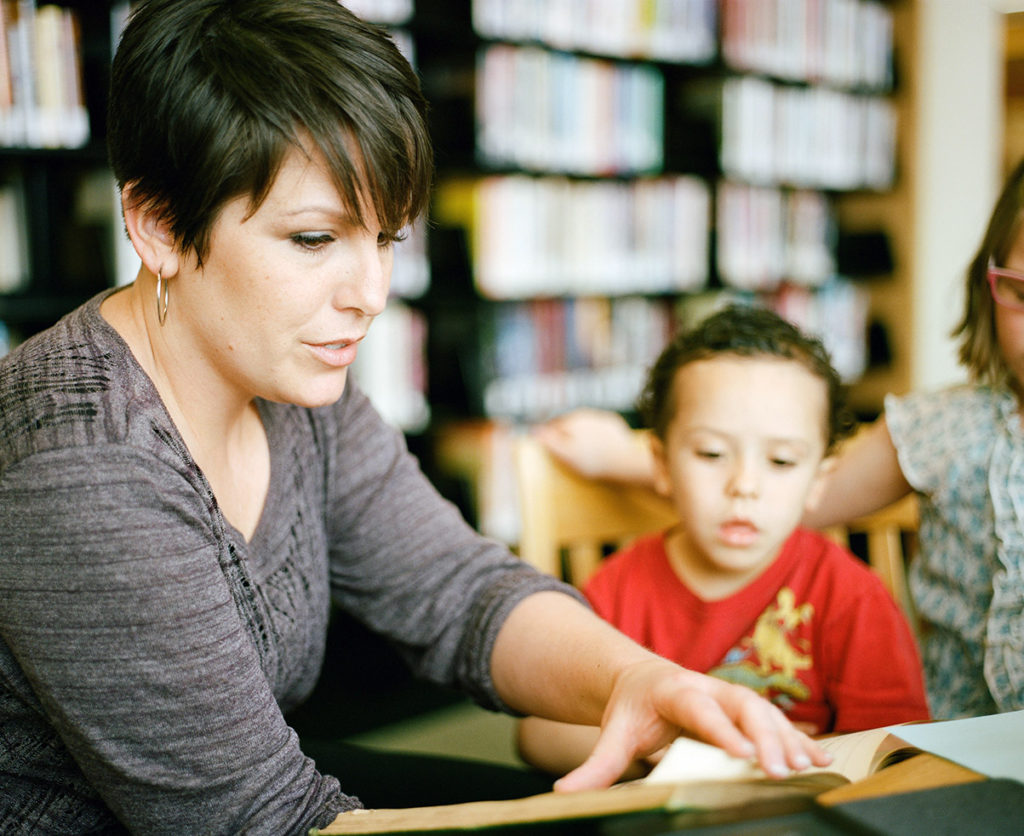The devastation caused by a flood, a tornado or a contagious disease is called a natural disaster. We often believe that a certain amount of suffering, death or loss is natural as well, pre-determined by intangible forces. We can forget about the behind-the-scenes decisions made over years by our legislators, our institutions and our communities. Those decisions can either spiral isolated events into a crisis or provide enough support to deescalate disaster if, and when, it strikes. For decades, the early childhood field has called for fair compensation, comprehensive benefits, tuition assistance for families and more support for the early childhood field. For years, early educators have been “teetering on the brink,” and without support, a significant percentage of the state’s private centers could close their doors permanently even with just a few more weeks of closures.
The COVID-19 crisis is a moment unlike any other, in which the invisible, undervalued labor that breathes life into our country’s economy and infrastructure is exposed. As professionals, advocates, providers, parents and community members, we have a unique opportunity to understand the work of early childhood providers and the work of other essential functions, historically considered “unskilled,” as part of the same struggle. We also must stay vigilant to ensure that, as other essential workers receive the recognition, hazard pay, sick leave and increased compensation they so deserve, child care providers are not left by the wayside.
The history of our nation’s under-valued and under-resourced early childhood system is already set in stone, but our future is not. When this crisis reaches an end, whenever that may be, North Carolina has a responsibility to build a strong early childhood system that is prepared for any crisis. We don’t yet know what the future will hold for North Carolina’s early childhood field. But we do know this. Our state’s early childhood providers, whether they be in a child care center, a family child care home or on a Zoom call reading to their children in pre-K, are resilient and creative. They have helped families through homelessness, health crises and natural disasters like hurricanes Matthew and Florence. Early childhood providers have always been on the frontlines in our state.

We also know that our state’s vast network of early childhood non-profits, CCR&R agencies and advocates will work tirelessly to support providers and families. Here at Child Care Services Association (CCSA), we are deeply grateful to be able to continue working mostly remotely. So far, we have set up a COVID-19 Relief Fund for programs, turned a National Symposium into a Virtual Forum, made payments to our T.E.A.C.H., WAGE$, and AWARD$ Plus recipients, staffed the statewide CCR&R hotline as a resource for essential workers to be connected with child care, continued our payments to Durham PreK sites, delivered technical assistance to programs, prepared meals for child care programs operating and just pledged to use our kitchen to work with Durham County to prepare meals for children and families. We will continue to do everything within our power to support our communities and our state as the situation unfolds.
Voices of Strength and Resilience in Early Childhood will be a regularly updated blog series throughout the length of the international COVID-19 crisis. CCSA recognizes that we are all receiving information at hyper-speed. Each day is a new frontier, with new developments about the virus, new policies and emergency supports rolling out, and new strategies being used in both in-person and virtual classrooms. This information overdrive doesn’t always give us the time to slow down, connect with one another and consider how to move forward from a place of wisdom.
This series will be a place to do just that, to share what we’ve learned, chronicle impacts on the field and share our visions for the future. When the immediate COVID-19 crisis comes to an end, it will serve as an archive of how North Carolina’s early childhood field was impacted, and how advocates and providers stepped up to respond.
If you are an early childhood provider, we are especially interested in your comments about how COVID-19 has affected you. You can submit stories of hopeful moments or have the chance to vent challenges by emailing us here.
See the next post in this blog series.



